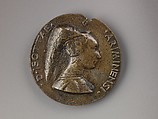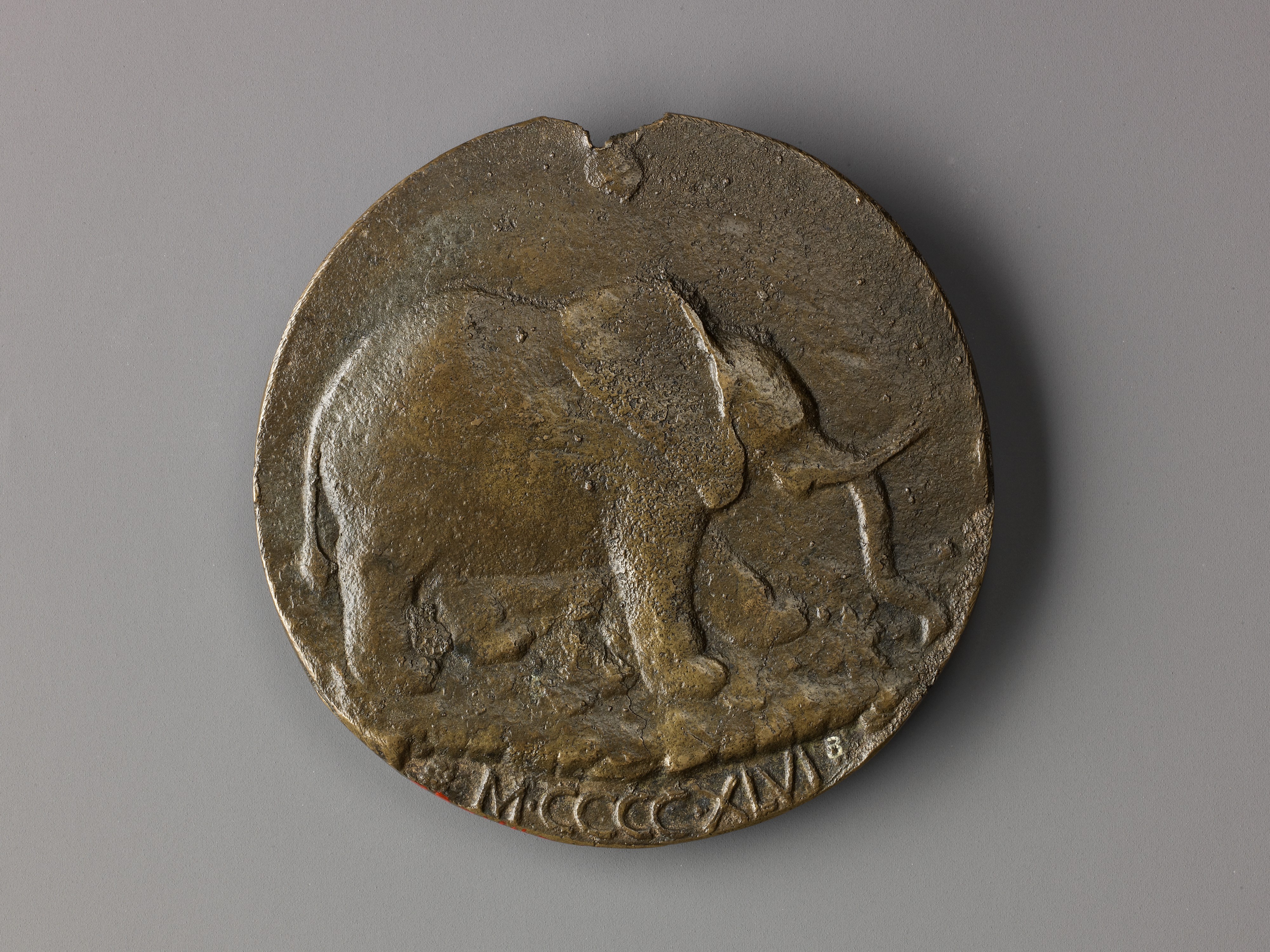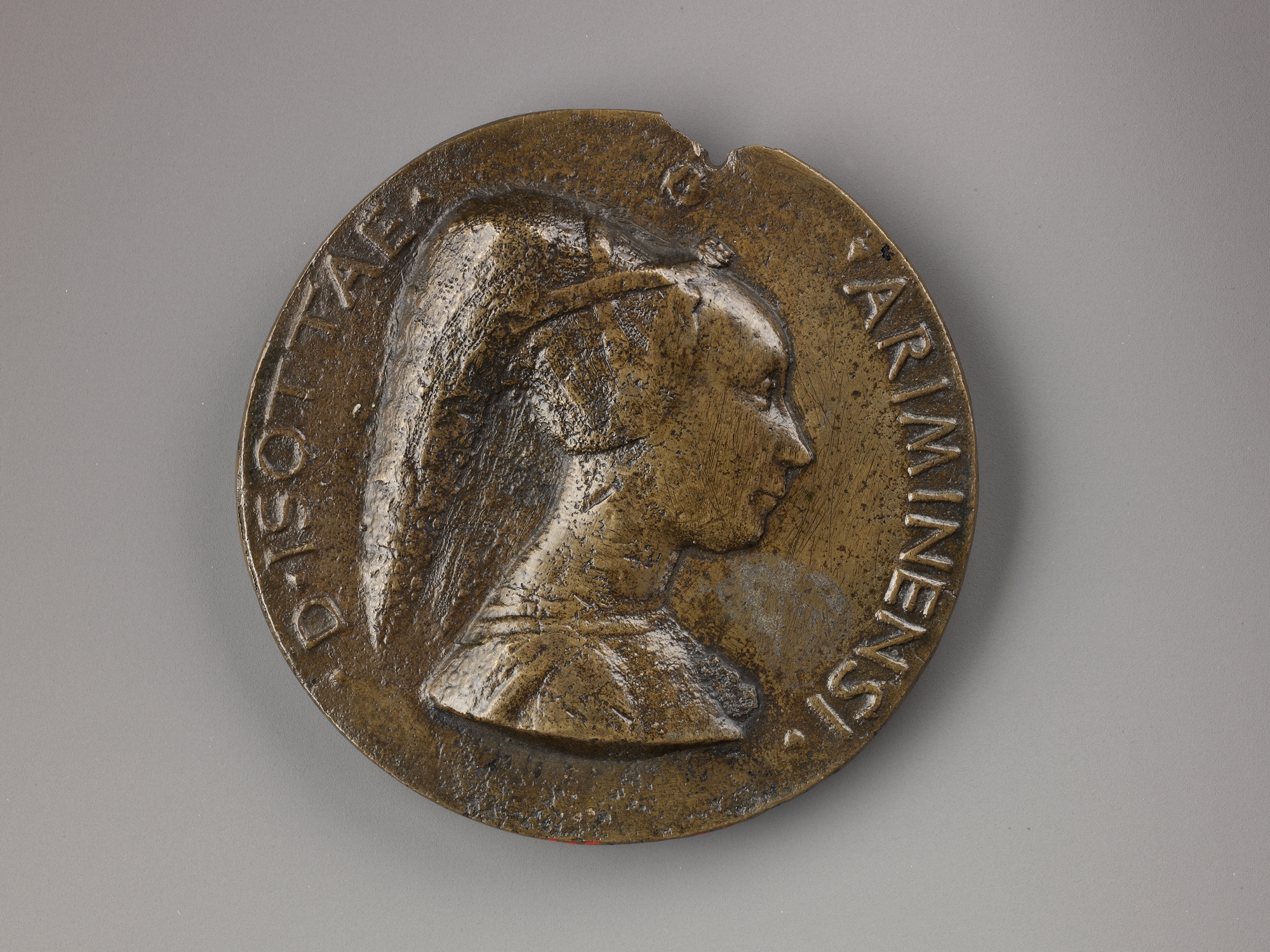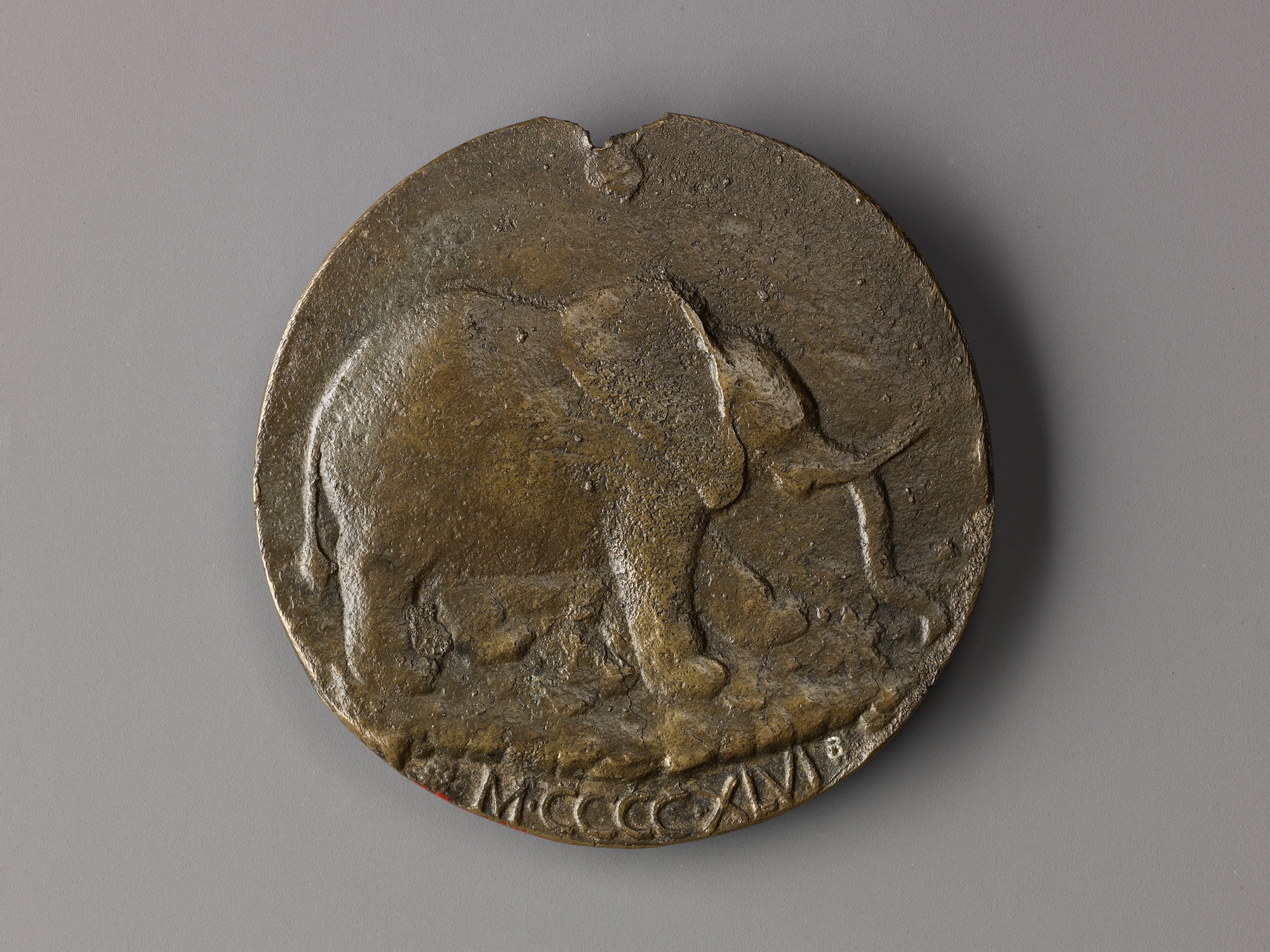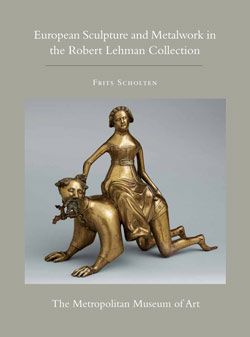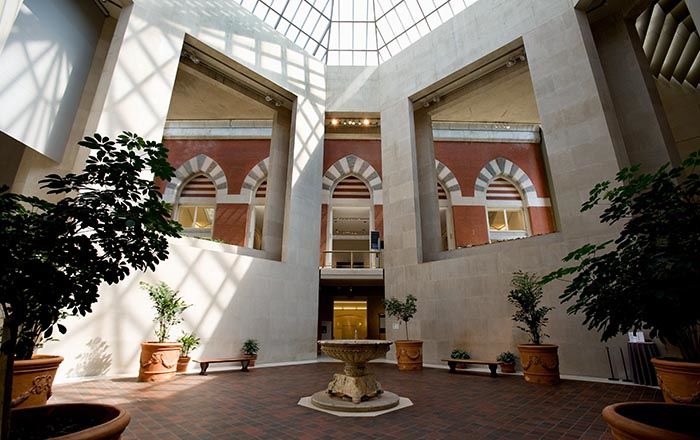Medal: Isotta Degli Atti
Matteo de' Pasti Italian
Not on view
An Italian medallist, architect, painter, and illuminator, Matteo de Pasti resided at the court of Rimini by 1449, where he worked on the construction and decoration of two large funerary chapels (1447–c. 1452) for Sigismondo Pandolfo Malatesta, Lord of Rimini, and Isotta degli Atti (his mistress and then third wife) in S Francesco (known as the Tempio Malatestiano). Like Pisanello, who had produced medals for the Malatesta, Matteo was also active as a medallist at the Rimini court. The obverse of this medal presents a portrait of Isotta, while on the reverse is a representation of an elephant, which is associated with magnanimity and fame, as well as piety and chastity. It also refers to the motto of the Malatesta family: Elephas indus culices non timet (the Indian elephant is not afraid of insects). This medal is derived from Matteo’s original model, but lacks the artist’s signature on the reverse. It was produced by an unknown Riminese workshop, possibly for use as foundation deposit; this work is a coarse and late aftercast, possibly from the nineteenth century.
This image cannot be enlarged, viewed at full screen, or downloaded.
This artwork is meant to be viewed from right to left. Scroll left to view more.
